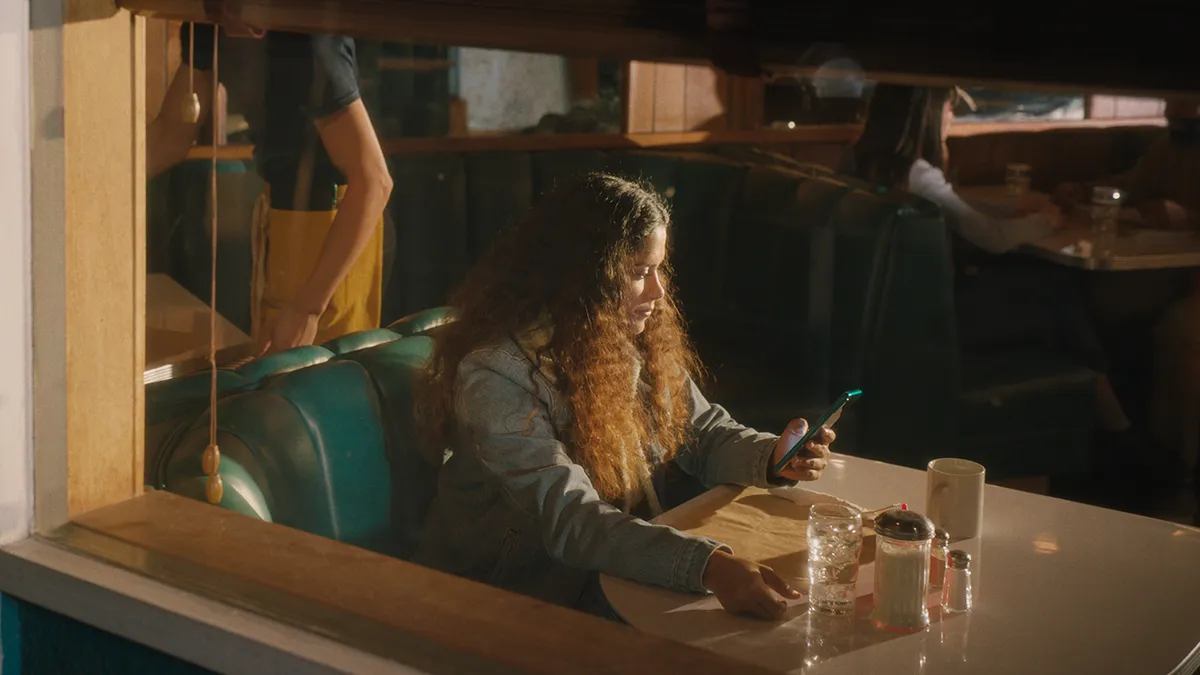Dive Brief:
- Robinhood will air its first-ever Super Bowl commercial as it looks to bring a message of democratizing stock trading to a wider audience, according to a company blog post.
- The 30-second spot, "We are all investors," depicts a group of people whose diversity intends to communicate how stock trading is meant for everyone. It ends on the line, "You don't need to become an investor. You were born one."
- The ad is sure to draw attention as Robinhood continues to weather public-relations fallout after limiting trades on stocks like GameStop last week amid surging demand. Many users believe the maneuver betrayed the company's purpose, and the app is facing several class-action lawsuits.
Dive Insight:
Robinhood's Super Bowl ad comes as the company is in the throes of a reputational crisis. While the big game can serve as an important stage for brand building and reaching tens of millions of consumers with a message, Robinhood's creative does not reference its current situation nor does it provide any sort of mea culpa to troves of alienated users. As the controversy that brought Robinhood under close scrutiny continues to command headlines, some viewers may equate silence on the subject as a potentially tone-deaf misstep.
The YouTube version of the spot, which has comments turned off, has an overwhelming dislikes-to-likes ratio, though only a small number of views at press time.
Robinhood has explained, at length, the reasoning behind its actions, which came in response to a massive amount of market volatility. The app last week restricted trading on retail stocks like GameStop, which experienced surging demand as part of a complicated saga where users of the Reddit forum WallStreetBets attempted to squeeze short sellers at hedge funds. The coordinated effort sent GameStop's stock skyrocketing, pushing some firms with short positions on the embattled video game retailer close to insolvency.
As high volumes of trading around meme stocks like GameStop continued, Robinhood brought the hammer down. In a blog post, the company said that it "limited buying in volatile securities to ensure it complied with deposit regulations." But many users saw those limitations as an attempt to guard institutional investors shaken by the pressure wielded by amateurs, and subsequently believed that Robinhood had betrayed a brand positioning that promises to "democratize finance for all" — a mission amplified in the Super Bowl campaign. A class-action lawsuit filed against Robinhood last Thursday in the U.S. District Court for the Southern District of New York alleged the service was "rigged" in favor of financial institutions and people who were not actual customers, CNN reported.
Despite the negative headlines, Robinhood hasn't seen consumer interest cool. The app was downloaded 600,000 times on Friday alone, The Wall Street Journal reported. The company received a $1 billion cash infusion from investors last Friday to keep pace with chaotic trading, and then raised another $2.4 billion in funding from shareholders over the weekend.
Robinhood said it needed the cash infusions because the stock market's central clearing hub, the Depository Trust & Clearing Corp. (DTCC), boosted tenfold the company's deposit requirements related to equities last week. In a blog post Tuesday, Robinhood CEO Vlad Tenev doubled down, blaming the clearinghouse's two-day settlement system for the cash crisis and advocating for real-time settlements.
An upshot is that Robinhood likely isn't going anywhere, and that the brand might need to have a more aggressive marketing strategy to sustain its momentum and build trust. On that front, the Super Bowl could be an important stage, with the ad Sunday introducing a broader brand campaign that is Robinhood's largest to date, CNBC said.
Robinhood joins a number of companies making their Super Bowl debuts during an unusual year. Several regular big-name advertisers, including Pepsi, Coca-Cola and Budweiser, will sit out Super Bowl LV to focus on other initiatives, such as vaccine awareness programs. DoorDash, Uber Eats, Fiverr and Mercari are among the digital services companies that are turning to the Super Bowl to shore up gains made during the pandemic.











